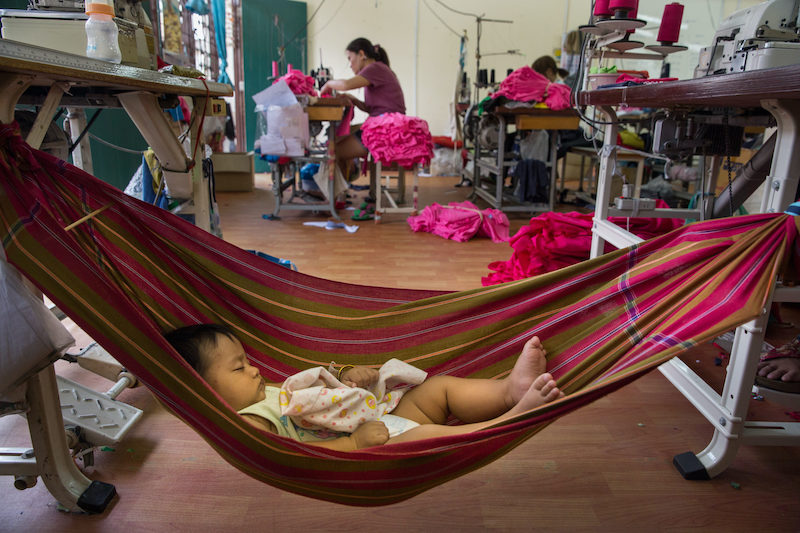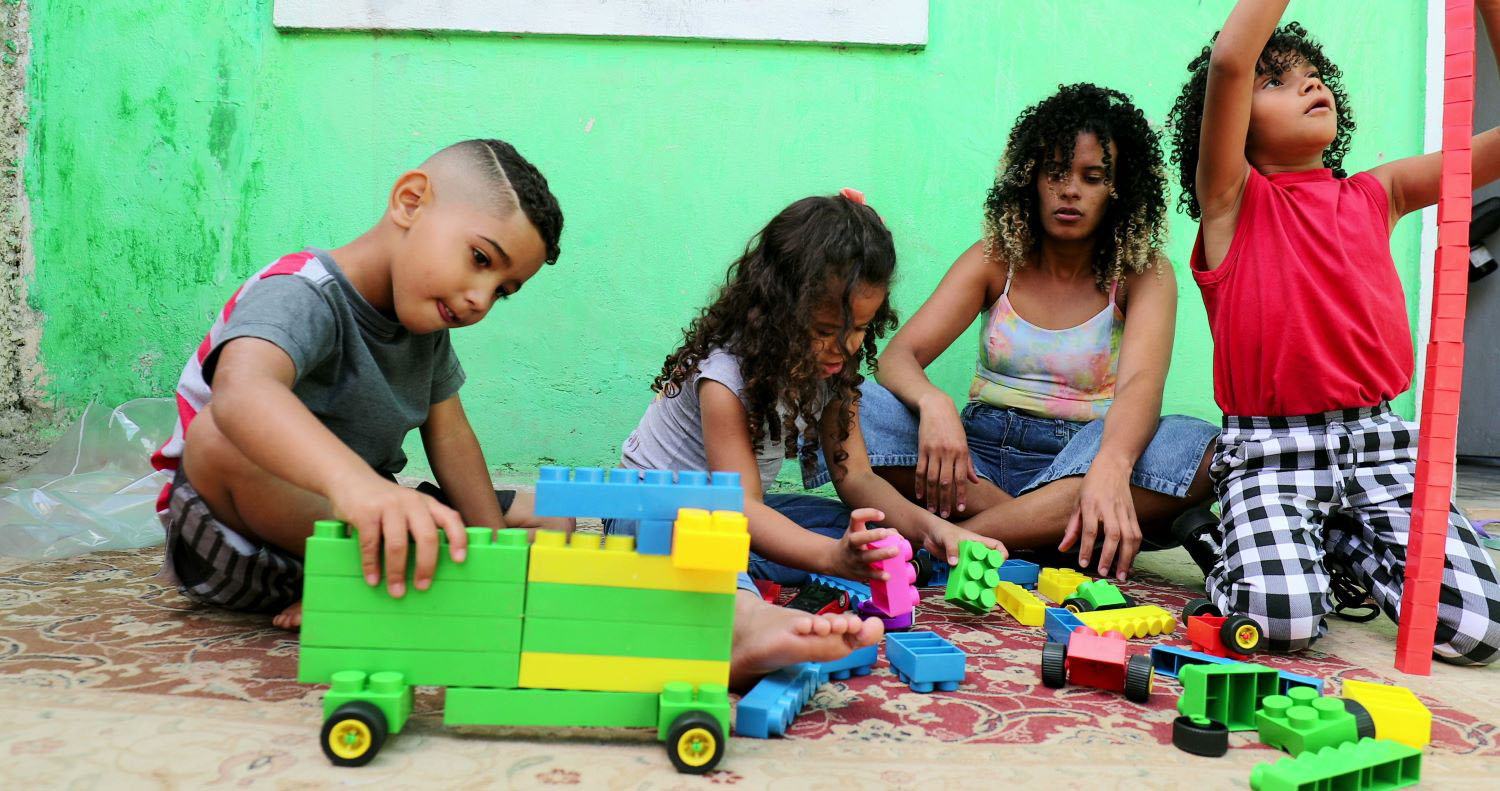Recommended

Blog Post
On July 16, leading up to the Women Deliver 2023 Conference in Kigali, Rwanda, the Center for Global Development, Women Deliver, the Asia Foundation, WeProsper Coalition, and the International Labour Organization co-hosted a Pre-Conference on the Care Economy in collaboration with a consortium of partner organizations. To commemorate this being the first Women Deliver conference held in Africa, CGD and the African Women's Development and Communications Network (FEMNET) organized a panel on “Care and Movement Building in Sub-Saharan Africa” moderated by Diana Macauley, MenCare global co-coordinator and co-manager of the Regional Programmes Unit at Sonke Gender Justice, a South African-based non-profit organization working throughout Africa to resist patriarchy, advocate for gender justice, and achieve gender transformation. The panel featured three regional experts to discuss the challenges, opportunities, and best practices on care and movement building on the continent: Lynette Okengo, executive director of the Africa Early Childhood Network (AfECN), a non-profit championing the protection of children’s rights in the African continent, Joyce Njoki Wanjohi, director of knowledge management, collaboration and learning at Uthabiti Africa, a Nairobi-based African non-profit, that provides access to childcare by leveraging partnerships with governments and non-state actors, and Lucy Minayo, director of the Home-Based Childcare Initiative at the Early Childhood Development Action Network (ECDAN), a global platform to catalyze collective action on behalf of young children and their families across the world.
Movements for care justice have proven to be an integral component of collective action to stimulate policy change, budget allocations, and better outcomes across the 5Rs of care work (recognizing, reducing, and redistributing unpaid care work; rewarding paid care work; and guaranteeing care workers’ representation). Panelists reflected on where things are moving on care work within the region, where there are opportunities and gaps, and what type of support is needed to galvanize movement building. The panel was also an opportunity to consider what lessons can be learned for movement building in other regional contexts and where there are common themes that can contribute to global agenda setting and advocacy.
Advancing policy and practice on care
Lynette shared insights on the key challenges and opportunities in advancing policy and practice on care. She cited low prioritization and funding of childcare by governments, inequitable access to quality childcare services, lack of professionalization of the work force, and the disconnect between research, policy, and practice as core challenges, and highlighted several promising avenues to support the care movement: 1) linking childcare discussions to the current drive to reform health and education systems in the region; 2) tapping into the growing number and quality of data resource sites; 3) taking advantage of the increased number of government programs at all levels – continental, sub-regional and national, to make young children more visible; 4) leveraging the expanded digital footprint in the region to provide an accessible medium for sharing information on caregivers and to facilitate regional coordination, knowledge-sharing, and exchange; 5) responding to emerging interest about improving childcare with greater engagement, to create a forum to enable governments to use the increasing data; and 6) channeling governments’ increased interest in seeking public participation to enhance policy development and implementation.
Building a childcare ecosystem
Joyce reflected on best practices in building a childcare ecosystem. She noted that some of these best practices include: 1) conducting evidence-based research to pinpoint ecosystem issues; 2) disseminating action-driven findings to policymakers and duty-bearers; 3) collaborating to achieve collective impact; 4) prioritizing children and caregivers in program design and implementation; 5) encouraging governments to lead policy and regulatory reform with the policy support of civil society organizations (CSOs); 6) strengthening childcare technical working groups and learning networks; and 7) documenting lessons learned and best practices to inform policy review and implementation.
Elevating home-based care providers
Lucy offered perspectives on useful strategies to elevate home-based childcare providers, and ensure they’re recognized and supported. These strategies include: 1) framing childcare services as a public good and human right, conforming to standards that foster child development and gender equality; 2) supporting an enabling environment of childcare laws, policies, and data essential for visibility; 3) mapping systems actors and their role in unlocking increased investments; 4) fostering local ownership by ensuring providers and parents help define quality standards; 5) aligning funders to ensure sustainable scaling up of interventions; and 6) building bridges across movements to improve communication, framing, and narrative development.
Working together for change
The panel closed with these thoughts on key issues moving forward:
-
Leverage data: Childcare data should be harnessed to map ecosystems, tailor engagements, and present solution-driven asks to policymakers.
-
Advocate to technocrats: Efforts should aim for sustainable state-partnerships, enabling buy-in of technical government workers regardless of administration shifts.
-
Build on existing platforms: Scaling must build upon local, national, and regional institutions to drive policy and legal reform and enhance the ecosystem. As the leading continental body of states, the African Union could play a vital role in advancing care. For example, through the early childhood cluster that the Education, Science, Technology and Innovation Department set up in 2018, which brings together member states and various non-state actors under four working groups to discuss issues related to policy, governance, quality, and data. This cluster provides a platform for a continental campaign for increased funding for affordable and accessible childcare programs, implementation of quality standards and regulations for childcare providers; support for parental leave policies to ensure parents have time to care for their children, expansion of early childhood education programs to promote child development as well as collaboration with community organizations to provide wraparound services for families in need. In addition, an ongoing positive masculinity programme under the Department of Women, Gender and Youth provides an opportunity to advocate for various issues surrounding childcare such as fair distribution of childcare work.
-
Collaborate: CSOs should unite and map the care landscape, preventing duplication, optimizing roles, and amplifying government engagement. Multisectoral multistakeholder CSO networking at all levels makes it possible for organizations to come together and, with the child at the center, discuss building synergies, benefit from distributed leadership and increased funding as they learn from each other and jointly advocate for more and better childcare.
Amid increasing interest in documenting best practices and investing in scalable solutions, the care movement in Africa stands at a pivotal moment. Insights from civil society organizations and practitioners working with African communities to transform the care economy provide valuable perspectives on policy reform and local care ecosystems. The outcomes of this discussion will contribute to a forthcoming Global Roadmap for Action. Stay tuned for updates.
Disclaimer
CGD blog posts reflect the views of the authors, drawing on prior research and experience in their areas of expertise. CGD is a nonpartisan, independent organization and does not take institutional positions.
Image credit for social media/web: Yvan Simbi





